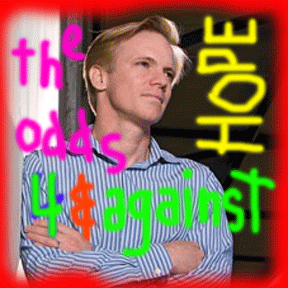
There have been no big reviews in the New York Times, the LA Times or the Washington Post or, heaven forbid, the New York Review of Books.
Yet, I noticed Sunday morning that a new book was residing at a comfy number eight on the New York Times nonfiction bestseller list, just a couple of notches below Stephen Colbert’s I Am America (And So Can You).
The unsung book selling quietly like hotcakes is called Hope’s Boy, written by a man named Andrew Bridge. As a child, Bridge spent 11 years in Los Angeles County foster care after he was taken away from his mentally ill mother. For part of that time, he lived in the now-closed, Dickensian hell hole that was McClaren Hall, LA’s once-notorious group residence for foster kids.
Bridge’s was a childhood that statistically-speaking nearly always predicts failure: A mind-boggling 50 percent of the kids who come to adulthood within the foster care system will be homeless within two years. Only 2 percent of the nation’s 500,000-plus children in foster care ever get a college degree. Bridge blew the odds out of the water by getting a scholarship to Wesleyan, then becoming a Fulbright Scholar, and graduating from Harvard Law School.
Since graduation, he has spent most of his adult life advocating for America’s children who, for one reason or another, are stuck in the awful social service mechanism known as “the system.”
I first met Bridge in early 2000 when I was working on an article for the LA Weekly about the foster care system.
More specifically, I was writing about a young woman I knew who was, at the time, too messed up behind drugs and….well, pain.…to be able to care for her kids. Those of us who cared about her and were watching her disintegrate were trying to figure out if the time had come to call the Department of Children and Family Services. In writing about the young woman and her kids, I also spent months reporting on the foster care system because I wanted to know what awaited Sofie’s boys if they were yanked from their mother. Was the situation likely to be better or worse?
In the course of my research I had several long conversations with Bridge, who was far and away the most intelligent, informed and impassioned and expert I encountered.
By then, I’d been reporting on gangs for more than a decade, yet in some ways I found researching the foster care system more harrowing, because the more I talked to Bridge and others, the more convinced I became that the system was disastrously broken and few people seemed to give a damn. I remember at the end of one of our conversations, Bridge summed up the worst of my perceptions. “You know what I sometimes think?” he said. “I think we ought to just be honest with ourselves. We ought to just stand up and say, ‘Look, we have substandard schools in California, substandard care for poor children. We know that, and it’s okay with us.’ Let’s at least admit what we’re doing to the kids of this state, rather than turning our heads away and pretending it isn’t happening.”
lThat was eight years ago. And while a few things have changed, much has not. (At least when it comes to schools, we’re finally having the conversation.)
And yet….the fact that Andrew Bridge’s book on the best seller list is a weirdly good sign, as is—and you can call me crazy, and this will seem like a non sequitur—Barak Obama’s wildfire candidacy. Both are testaments to the fact that, deep down most Americans want to admit that we belong to each other, and are willing to be part of the solution—at least some solution— if someone will just point the way for us to do so, and remind us that solutions are not impossible..
Okay, that’s my crazily upbeat thought for this windy March morning. Don’t blame me for the cockeyed optimism, Hope’s boy(s) led me to it.
Or to paraphrase Tina Fey in a manner that I doubt she would appreciate: maybe optimism is the new black.
PS: Although the LA Times didn’t run a full review, the Times’ very smart and soulful Susan Salter Reynolds evidently snapped awake on the issue of Bridge’s book a few days before I did and wrote a nice little feature that ran this past Friday. KPCC’s Larry Mantle also interviewed Bridge on Thursday.

Heard him on the local NPR station – KPCC. Very interesting.
as someone who has worked within the child welfare system — and has seen the good, the bad and the ugly — this book evokes so many feelings. i read it, loved it and recommend it to anyone who is truly concerned with the future. the value of a society can be measured by how its children are treated — and Bridge represents one great hope (no pun intended) for our world. along with obama….
I wish his book had gotten the big push that the now-pulled false memoir “Love and Consequences” got…